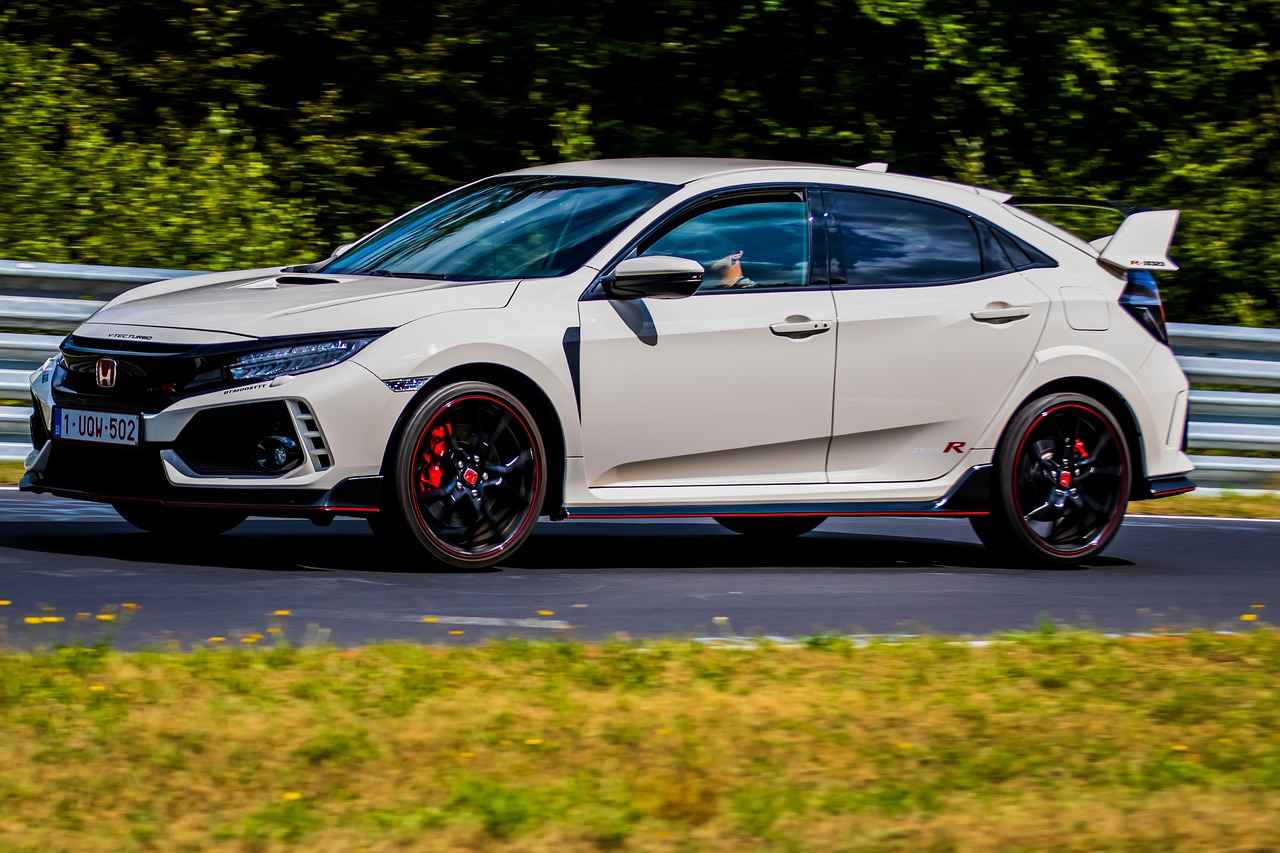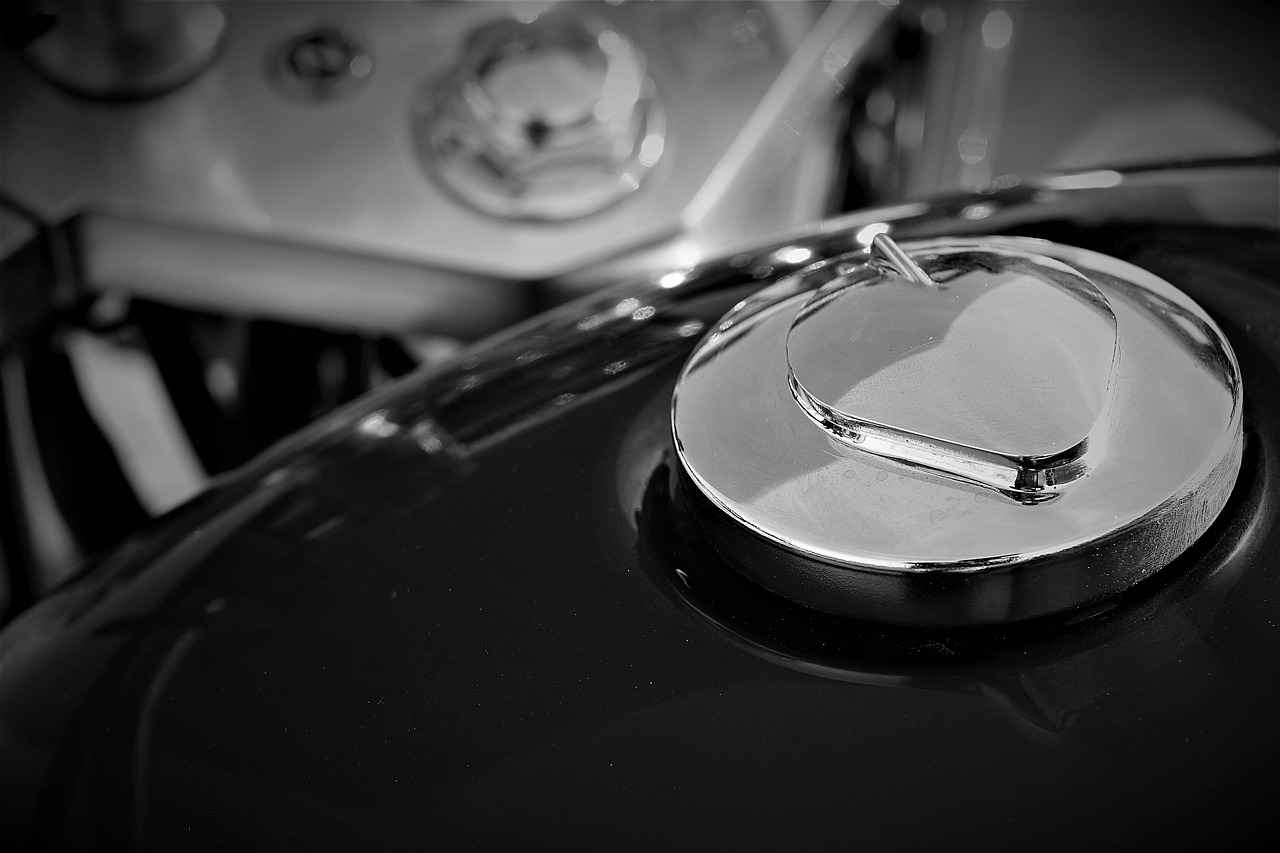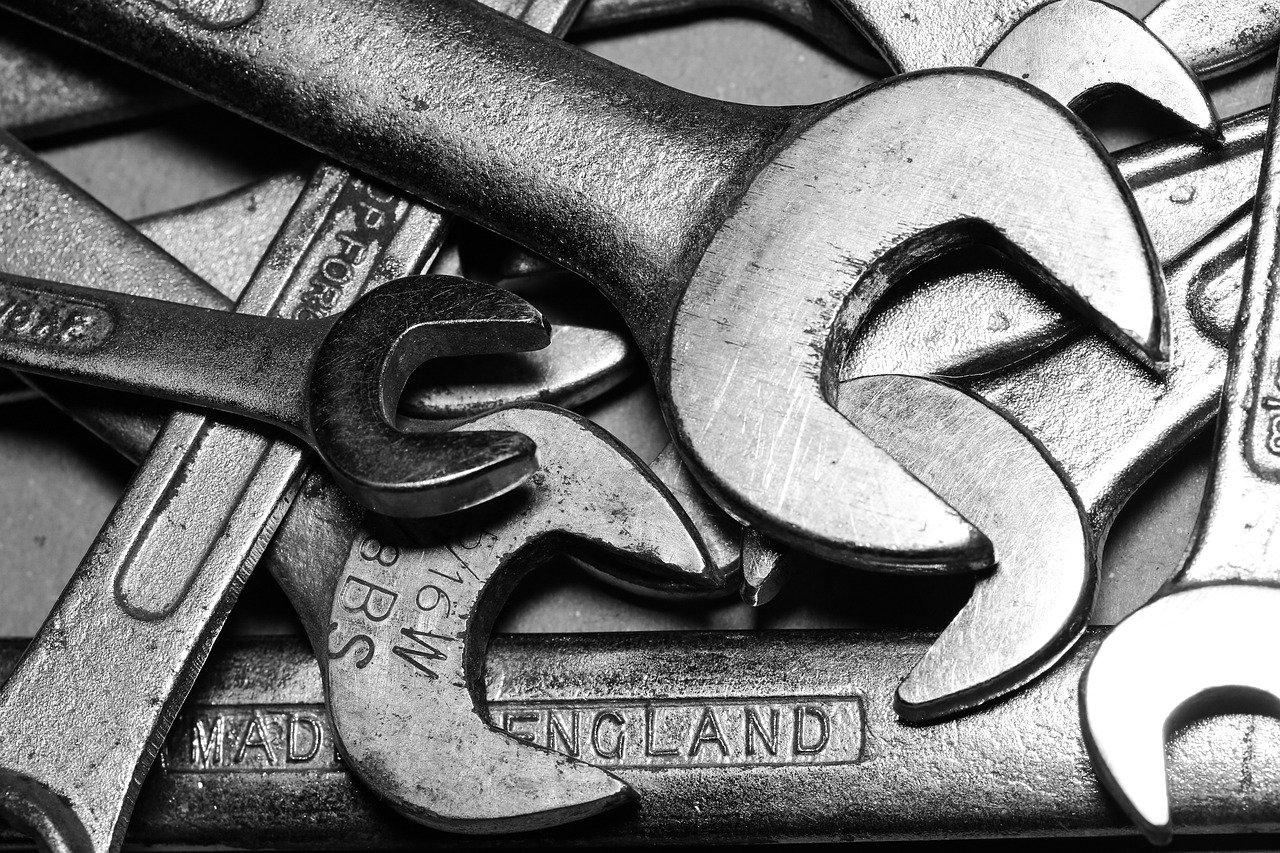The Honda Accord is renowned for its reliability and longevity, making it a popular choice among car enthusiasts and everyday drivers alike. This article delves into the factors that contribute to the lifespan of the Honda Accord, offering maintenance tips and sharing real-world mileage experiences from owners to provide a comprehensive understanding of this vehicle’s durability.
The average lifespan of a Honda Accord typically ranges from 200,000 to 300,000 miles with proper maintenance. Many owners report achieving these milestones, thanks to the vehicle’s robust engineering and reliable components.
Several key factors play a crucial role in determining how long a Honda Accord can last:
- Driving Conditions: Urban driving with frequent stops can wear the vehicle down faster compared to highway driving.
- Maintenance Frequency: Regular upkeep is essential for ensuring the vehicle operates at its best.
- Model Year: Newer models often come with improved technology and features that can enhance durability.
Routine maintenance is vital for maximizing the lifespan of your Honda Accord. Key practices include:
- Regular Oil Changes: Changing the oil every 5,000 to 7,500 miles helps maintain engine health.
- Tire Rotations: This ensures even wear and prolongs tire life.
- Brake Inspections: Regular checks can prevent costly repairs due to worn-out components.
Your driving habits significantly influence your Honda Accord’s lifespan. Gentle driving, avoiding aggressive acceleration and hard braking, can help minimize wear and tear. Additionally, taking longer trips can be beneficial, as short trips often lead to incomplete engine warm-ups, which can contribute to engine wear.
Many Honda Accord owners share their experiences, often noting that their vehicles surpass 200,000 miles with diligent upkeep. Anecdotal evidence suggests that those who regularly service their vehicles and practice good driving habits often enjoy a longer lifespan.
Common mileage milestones for Honda Accords include:
- 100,000 miles: A significant achievement for many owners.
- 200,000 miles: This milestone is often celebrated by Accord owners.
- 300,000 miles: A testament to the vehicle’s durability and the owner’s commitment to maintenance.
To maximize your Honda Accord’s lifespan, consider these maintenance tips:
- Check Fluids Regularly: Ensure that coolant, brake fluid, and transmission fluid are at appropriate levels.
- Inspect Belts and Hoses: Replace them as needed to prevent breakdowns.
- Follow the Manufacturer’s Maintenance Schedule: Adhering to the recommended service intervals can prevent major issues.
Being aware of warning signs can help you address issues early. Look for:
- Unusual Noises: Any strange sounds could indicate mechanical issues.
- Warning Lights: Dashboard indicators should never be ignored.
- Decreased Performance: A noticeable drop in power or efficiency may signal a problem.
Preventative measures such as regular inspections and addressing minor issues promptly can help avoid costly repairs. By staying proactive, you can extend the life of your Honda Accord and ensure it remains a reliable vehicle for years to come.

What Is the Average Lifespan of a Honda Accord?
The Honda Accord is renowned for its reliability and longevity, making it a popular choice among car buyers. Understanding the average lifespan of a Honda Accord can help potential and current owners appreciate the value of this vehicle. While the lifespan can vary, many owners report their Accords lasting well over 200,000 miles with proper care and maintenance.
The average lifespan of a Honda Accord can significantly depend on various factors such as maintenance practices, driving habits, and environmental conditions. Many owners have shared experiences of their vehicles exceeding 200,000 miles, with some even reaching upwards of 300,000 miles. This impressive durability is often attributed to the Accord’s engineering and the commitment of owners to maintain their vehicles properly.
Several critical factors influence how long a Honda Accord can last:
- Driving Conditions: Vehicles driven primarily in harsh environments or heavy traffic may experience more wear and tear.
- Maintenance Frequency: Regular maintenance can prevent minor issues from escalating into major problems.
- Model Year: Newer models often incorporate advanced technology and engineering improvements that can enhance longevity.
Regular maintenance is essential for maximizing the lifespan of any vehicle, including the Honda Accord. Key maintenance practices include:
- Routine Oil Changes: Changing the oil at recommended intervals (typically every 5,000 to 7,500 miles) is crucial for engine health.
- Tire Rotations: Regularly rotating tires can ensure even wear and extend their life.
- Brake Checks: Keeping brakes in good condition is vital for safety and performance.
Driving habits can significantly affect the lifespan of a Honda Accord. Aggressive driving, such as rapid acceleration and hard braking, can lead to increased wear on components. In contrast, gentle driving and avoiding frequent short trips can help minimize wear and tear, thereby extending the vehicle’s life.
Many Honda Accord owners proudly share their mileage milestones. Common achievements include:
- 100,000 miles: A significant milestone indicating that the vehicle is just getting started.
- 200,000 miles: Many owners celebrate this milestone with pride, showcasing the durability of their vehicle.
- 300,000 miles: Some dedicated owners report reaching this impressive figure through diligent maintenance.
To maximize your Honda Accord’s lifespan, consider implementing the following maintenance tips:
- Regular Fluid Checks: Besides oil, regularly check and replace other fluids like coolant, brake fluid, and transmission fluid.
- Scheduled Inspections: Routine inspections can help identify potential issues before they become serious problems.
- Addressing Minor Issues: Promptly addressing minor repairs can prevent them from escalating into major repairs.
Recognizing early signs of trouble can help maintain your Honda Accord’s longevity. Look for:
- Unusual Noises: Any strange sounds can indicate underlying problems.
- Warning Lights: Dashboard warning lights should never be ignored.
- Decreased Performance: A noticeable drop in performance can signal that maintenance is required.
By understanding the average lifespan of a Honda Accord and adhering to proper maintenance practices, owners can enjoy many years and miles of reliable performance.

Factors Influencing the Longevity of a Honda Accord
The longevity of a Honda Accord is a subject of great interest among car enthusiasts and potential buyers alike. Understanding the factors influencing the lifespan of this popular vehicle can provide valuable insights for current and future owners. In this section, we delve into the critical elements that determine how long a Honda Accord can last, ensuring that you have the knowledge to maximize your investment.
Several factors play a crucial role in determining how long a Honda Accord can last, including driving conditions, maintenance frequency, and the model year of the vehicle. Each of these aspects contributes significantly to the overall durability and performance of the vehicle.
- Driving Conditions: The environment in which you drive your Honda Accord can greatly affect its lifespan. For instance, vehicles driven primarily in urban areas often experience more stop-and-go traffic, which can lead to increased wear and tear. Conversely, those driven in rural or less congested areas may have a longer lifespan due to less frequent braking and acceleration.
- Maintenance Frequency: Regular maintenance is essential for extending the life of any vehicle. Honda recommends adhering to a strict maintenance schedule, including oil changes, brake inspections, and tire rotations. Neglecting these tasks can lead to severe mechanical issues that may drastically shorten the vehicle’s lifespan.
- Model Year: Different model years of the Honda Accord may come equipped with varying technologies and build quality. Newer models often feature advancements in engineering and materials, which can enhance durability. Researching the specific model year’s reviews and reliability ratings can provide insights into its longevity potential.
Additionally, other factors such as driving habits and climate can also play a significant role. For example, aggressive driving can lead to premature wear on the engine and transmission, while harsh weather conditions can affect various components of the vehicle.
Your driving style can have a profound impact on the lifespan of your Honda Accord. Gentle driving, characterized by smooth acceleration and braking, can significantly reduce wear and tear on the vehicle. In contrast, aggressive driving, which includes rapid acceleration and hard braking, can lead to increased stress on the engine and brakes, potentially shortening the vehicle’s life.
To ensure your Honda Accord reaches its maximum lifespan, it’s crucial to follow a comprehensive maintenance routine. Key practices include:
- Regular Oil Changes: Keeping the engine oil fresh is vital for lubrication and preventing engine wear. Most experts recommend changing the oil every 5,000 to 7,500 miles.
- Fluid Checks: Regularly checking and replacing fluids such as coolant, brake fluid, and transmission fluid is essential for maintaining optimal performance.
- Tire Maintenance: Ensuring tires are properly inflated and rotated can improve fuel efficiency and prolong the life of the tires and suspension system.
Many Honda Accord owners report that with diligent maintenance and responsible driving, their vehicles can surpass 200,000 miles. These real-world experiences highlight the potential longevity of the Accord when cared for properly. Some owners even celebrate reaching milestones of 300,000 miles or more, showcasing the durability of this well-engineered vehicle.
In conclusion, understanding the factors that influence the longevity of a Honda Accord is essential for any owner or potential buyer. By considering driving conditions, adhering to a strict maintenance schedule, and being mindful of driving habits, you can significantly enhance the lifespan of your vehicle.
How Does Maintenance Impact Longevity?
The longevity of your Honda Accord is significantly influenced by how well you maintain it. Regular maintenance is not just a suggestion; it is a necessity for ensuring that your vehicle remains reliable and performs optimally over the years. In this section, we will explore how maintenance impacts the lifespan of your Honda Accord and provide practical tips to keep your car running smoothly.
Routine maintenance practices are essential for preventing minor issues from becoming major problems. Simple tasks like oil changes, tire rotations, and brake inspections can significantly extend the life of your vehicle. Neglecting these can lead to:
- Engine wear: Old oil can cause engine components to wear out faster.
- Decreased fuel efficiency: A poorly maintained engine can lead to higher fuel consumption.
- Brake failure: Worn-out brake components can compromise safety.
Implementing key maintenance practices can make a substantial difference in the longevity of your Honda Accord. Here are some essential tasks:
- Oil Changes: Change your oil every 5,000 to 7,500 miles, depending on your driving conditions and oil type.
- Tire Maintenance: Rotate your tires every 6,000 to 8,000 miles to ensure even wear.
- Brake Checks: Inspect your brakes regularly and replace pads as needed to avoid costly repairs.
- Fluid Levels: Regularly check and replace fluids such as coolant, brake fluid, and transmission fluid.
Scheduled maintenance is vital as it ensures that potential problems are identified and addressed before they escalate. For instance, a simple fluid leak can lead to significant engine damage if not caught early. By adhering to a maintenance schedule, you are essentially investing in the longevity and reliability of your vehicle.
Your driving habits also play a crucial role in how often you need to maintain your Honda Accord. Aggressive driving can lead to quicker wear and tear, necessitating more frequent maintenance. Conversely, gentle driving and avoiding sudden stops can prolong the life of your vehicle and reduce maintenance frequency.
Engaging in preventative maintenance not only extends the life of your Honda Accord but also enhances its performance. Benefits include:
- Cost Savings: Regular maintenance can prevent costly repairs down the line.
- Improved Safety: Well-maintained vehicles are safer to drive.
- Higher Resale Value: A car with a documented maintenance history is more appealing to potential buyers.
In conclusion, the impact of maintenance on the longevity of your Honda Accord cannot be overstated. By following a regular maintenance schedule and adopting good driving habits, you can ensure that your vehicle not only lasts longer but also continues to perform at its best. Remember, an ounce of prevention is worth a pound of cure when it comes to vehicle maintenance.
What Are Essential Maintenance Practices?
The longevity of your Honda Accord is significantly influenced by how well you maintain it. By adopting essential maintenance practices, you can ensure that your vehicle remains in optimal condition, extending its lifespan and enhancing its performance. Below, we outline key maintenance practices that every Honda Accord owner should consider.
One of the most important maintenance tasks is to perform regular oil changes. Oil lubricates the engine components, reducing friction and preventing overheating. It is generally recommended to change the oil every 5,000 to 7,500 miles, depending on the type of oil used and driving conditions. Neglecting this task can lead to engine wear and tear, resulting in costly repairs.
In addition to engine oil, several other fluids are vital for your vehicle’s performance:
- Coolant: Prevents the engine from overheating.
- Brake Fluid: Essential for effective braking performance.
- Transmission Fluid: Ensures smooth gear shifting.
Regularly checking and replacing these fluids can prevent serious issues and enhance the overall health of your Honda Accord.
Components such as brake pads, tires, and wiper blades experience wear over time and should be replaced as needed. For instance, brake pads typically need replacement every 30,000 to 70,000 miles, depending on driving habits. Regular inspections can help identify parts that require replacement before they fail, ensuring your safety and the longevity of your vehicle.
Honda recommends a scheduled maintenance plan that includes inspections and replacements at specific intervals. This proactive approach helps catch potential issues early, preventing them from escalating into major problems. Following the manufacturer’s guidelines not only extends the life of your Accord but also maintains its resale value.
Your driving style can significantly impact your vehicle’s lifespan. Aggressive driving, such as rapid acceleration and hard braking, can lead to faster wear on components. Conversely, gentle driving and avoiding short trips can reduce stress on the engine and other parts, promoting a longer lifespan for your Honda Accord.
Many Honda Accord owners report that with diligent maintenance, their vehicles surpass 200,000 miles. This highlights the importance of following maintenance guidelines and being attentive to the vehicle’s needs. Engaging with other owners and sharing experiences can provide valuable insights into effective maintenance strategies.
To maximize the lifespan of your Honda Accord, it’s essential to avoid common maintenance mistakes:
- Ignoring Warning Lights: Always address dashboard warning lights immediately.
- Skipping Regular Inspections: Preventative maintenance is key to avoiding costly repairs.
- Using Low-Quality Parts: Always opt for OEM or high-quality aftermarket parts for replacements.
By implementing these essential maintenance practices, you can significantly enhance the longevity and reliability of your Honda Accord. Regular attention to maintenance not only keeps your vehicle running smoothly but also ensures that you enjoy many miles of trouble-free driving.
Why Is Scheduled Maintenance Important?
When it comes to vehicle longevity, scheduled maintenance is a critical factor that cannot be overlooked. For owners of the Honda Accord, adhering to a maintenance schedule is not just about keeping the car looking good; it is about ensuring the vehicle operates efficiently and lasts for many years. Regular check-ups and servicing help in identifying potential issues before they escalate into major problems, which could lead to costly repairs and reduced performance.
One of the primary benefits of scheduled maintenance is that it allows for early detection of mechanical issues that could compromise the vehicle’s performance. For instance, a simple oil change can prevent engine wear and tear, while routine brake inspections can avert dangerous situations on the road. By addressing these issues promptly, you can significantly extend the life of your Honda Accord.
- Prevents Major Repairs: By catching small issues early, you can avoid the need for expensive repairs down the line.
- Enhances Performance: Regular maintenance ensures that your vehicle runs smoothly, providing you with a better driving experience.
- Increases Resale Value: A well-maintained car typically fetches a higher price when it comes time to sell.
- Improves Safety: Regular inspections can help ensure that critical safety features, such as brakes and tires, are functioning properly.
The frequency of scheduled maintenance can depend on various factors, including driving habits and environmental conditions. However, a general guideline is to have your Honda Accord serviced every 5,000 to 7,500 miles or at least once a year. This schedule typically includes oil changes, tire rotations, and fluid checks. Additionally, it is advisable to refer to the owner’s manual for specific recommendations related to your model year.
- Oil Changes- Tire Rotations- Brake Inspections- Fluid Checks (coolant, brake, transmission)- Battery Checks- Air Filter Replacement
By following these maintenance tasks diligently, you ensure that your Honda Accord remains in optimal condition. Furthermore, many owners find that adhering to a strict maintenance schedule not only enhances the vehicle’s performance but also provides peace of mind while driving.
Despite the clear benefits, some drivers may overlook scheduled maintenance due to a variety of reasons. Common excuses include time constraints, the perceived cost of service, or simply forgetting to schedule an appointment. However, it is essential to understand that neglecting these responsibilities can lead to more significant issues that are far more costly and time-consuming to resolve.
In conclusion, scheduled maintenance is a vital component in the care of your Honda Accord. By prioritizing regular check-ups and addressing minor issues proactively, you not only enhance the performance and safety of your vehicle but also extend its lifespan significantly. This commitment to maintenance ultimately pays off, ensuring that your Honda Accord remains a reliable companion for many miles to come.
What Role Do Driving Habits Play?
Driving habits are a significant factor influencing the longevity of any vehicle, including the Honda Accord. Understanding how these habits affect your car can help you make informed decisions that promote its durability and performance.
Aggressive driving behaviors, such as rapid acceleration, hard braking, and sharp turns, can lead to increased wear and tear on your Honda Accord. These habits put extra stress on the engine, brakes, and tires, which can result in a shorter lifespan for your vehicle. Studies show that vehicles driven aggressively can experience up to 30% more wear compared to those driven gently.
Frequent short trips can also negatively impact your Honda Accord’s lifespan. When you drive only short distances, the engine may not reach its optimal operating temperature. This can lead to incomplete combustion and the buildup of harmful deposits in the engine. As a result, the engine may wear out faster, reducing its overall efficiency and longevity.
On the contrary, adopting gentle driving habits can significantly enhance the lifespan of your Honda Accord. Smooth acceleration and gradual braking reduce stress on the engine and other components, leading to less wear and tear. Additionally, driving at consistent speeds on longer trips allows the engine to operate more efficiently, improving fuel economy and reducing emissions.
The conditions in which you drive also play a critical role in determining how long your Honda Accord lasts. For example, driving in heavy traffic or on rough roads can cause additional strain on your vehicle. Maintaining a calm driving style in these conditions can help mitigate some of the negative effects. Furthermore, regularly assessing your driving environment and adapting your habits accordingly can lead to better overall vehicle health.
- Plan Longer Trips: Whenever possible, opt for longer drives rather than frequent short trips.
- Maintain a Steady Speed: Use cruise control on highways to maintain a consistent speed and reduce engine strain.
- Avoid Rapid Starts and Stops: Practice gradual acceleration and braking to minimize wear on brakes and tires.
- Monitor Driving Conditions: Be aware of road conditions and traffic patterns to choose the best routes.
Tracking your driving habits can be beneficial for understanding their impact on your Honda Accord. Consider using smartphone apps or onboard diagnostics tools that provide feedback on your driving style. By identifying areas for improvement, you can make conscious changes that promote better vehicle health.
In summary, the way you drive has a profound impact on the lifespan of your Honda Accord. By adopting gentle driving habits and being mindful of driving conditions, you can significantly enhance your vehicle’s durability and performance. Making these small adjustments can lead to a more reliable and long-lasting driving experience.

Real-World Experiences: How Long Do Owners Keep Their Accords?
The longevity of a vehicle is often a significant concern for potential buyers, and the Honda Accord stands out in this regard. Many owners have shared their experiences, revealing that with diligent upkeep and responsible driving, their Honda Accords often exceed 200,000 miles. This article delves into real-world experiences from Honda Accord owners, exploring how long they keep their vehicles and what contributes to their impressive lifespan.
Numerous Honda Accord owners report that their cars not only last beyond the 200,000-mile mark but often continue to perform well even after reaching this milestone. Owners frequently highlight the importance of consistent maintenance and careful driving habits as key factors in achieving such high mileage. Many have shared stories of their vehicles running smoothly at 300,000 miles, a testament to the durability of the Honda Accord.
Regular maintenance is a recurring theme among Accord owners. Many emphasize the value of following the manufacturer’s maintenance schedule, which includes:
- Routine oil changes
- Tire rotations
- Brake inspections
- Fluid checks and replacements
These practices are crucial in preventing major mechanical issues and ensuring that the vehicle remains in optimal condition. Owners who adhere to these guidelines often report fewer problems and longer-lasting performance.
Driving habits significantly impact the lifespan of a Honda Accord. Owners who engage in gentle driving and avoid aggressive acceleration and hard braking tend to experience less wear on their vehicles. Additionally, those who take longer trips rather than frequent short drives often find that their cars perform better over time. This is because longer trips allow the engine to reach optimal operating temperatures, which can reduce engine wear.
Honda Accord owners often celebrate various mileage milestones, such as:
- 100,000 miles: A significant benchmark for any vehicle.
- 200,000 miles: Many owners consider this a badge of honor.
- 300,000 miles: A rare achievement that showcases exceptional care and maintenance.
These milestones are not just numbers; they represent the dedication of owners who prioritize maintenance and responsible driving.
While all Honda Accords are known for their reliability, certain models may have features that contribute to their longevity. For instance, newer models often come equipped with advanced technology that enhances fuel efficiency and reduces wear on components. Owners of older models, however, frequently report that with the right care, their vehicles can last just as long, if not longer, than newer versions.
To maximize the lifespan of your Honda Accord, consider the following maintenance tips:
- Change your oil every 5,000 to 7,500 miles, depending on driving conditions.
- Regularly check and replace fluids such as coolant, brake fluid, and transmission fluid.
- Keep an eye on tire health and rotate them as recommended.
- Address minor issues promptly to prevent them from escalating into major problems.
By following these guidelines, you can join the ranks of Honda Accord owners who enjoy the benefits of a long-lasting vehicle.
What Are Common Mileage Milestones for Honda Accords?
The Honda Accord is renowned for its reliability and longevity, making it a favorite among car enthusiasts and everyday drivers alike. One of the most significant aspects of owning a Honda Accord is reaching various mileage milestones. These milestones not only signify the durability of the vehicle but also highlight the dedication of owners to maintain their cars properly. In this section, we will explore the common mileage milestones for Honda Accords, the significance of these achievements, and how owners celebrate them.
For many Honda Accord owners, reaching 100,000 miles is a notable milestone. This mark is often viewed as a testament to the vehicle’s durability and the owner’s commitment to maintenance. At this point, many drivers take the opportunity to reflect on their car’s journey, sharing stories of road trips, daily commutes, and memorable experiences.
As owners continue to care for their vehicles, the next significant milestone often comes at 200,000 miles. Celebrating this achievement is common among Accord enthusiasts, with many taking to social media to share their pride. Owners may document their maintenance routines, highlight the importance of regular check-ups, and even offer tips to fellow drivers on how to achieve similar longevity with their vehicles.
But the journey doesn’t stop at 200,000 miles. Many Honda Accords have been known to surpass 300,000 miles and beyond. These exceptional cases often become legendary within communities of Honda fans. Owners of high-mileage Accords frequently share their stories, emphasizing the role of consistent maintenance, quality parts, and a gentle driving style. Such stories not only inspire others but also create a sense of camaraderie among Accord owners.
Celebrating these mileage milestones is not just about the numbers; it reflects a relationship between the owner and the vehicle. Many drivers feel a sense of accomplishment when they reach these milestones, as it represents their commitment to proper care and maintenance. This bond often leads to a deeper appreciation for the vehicle’s engineering and reliability.
Moreover, sharing these milestones creates a supportive community among Honda Accord owners. Online forums, social media groups, and local car clubs often feature celebrations of high mileage, where owners exchange tips, experiences, and even maintenance hacks. This sense of community fosters a culture of care and responsibility, encouraging more drivers to prioritize maintenance and care for their vehicles.
To ensure that your Honda Accord reaches these impressive mileage milestones, consider the following maintenance tips:
- Regular Oil Changes: Change your oil every 5,000 to 7,500 miles, depending on driving conditions.
- Fluid Checks: Regularly check and replace coolant, brake fluid, and transmission fluid.
- Tire Maintenance: Rotate your tires and ensure they are properly inflated to enhance fuel efficiency and performance.
- Brake Inspections: Regularly check your brakes to prevent wear and ensure safety.
- Gentle Driving: Avoid aggressive acceleration and braking to minimize wear on your vehicle.
By implementing these practices, you can help your Honda Accord achieve its full potential and reach impressive mileage milestones. Remember, the journey is just as important as the destination, and every mile is a testament to your dedication and care.
How Do Different Models Compare in Longevity?
The Honda Accord is a well-respected name in the automotive industry, known for its reliability and longevity. However, different models of the Accord may exhibit varying levels of durability based on their specific design and engineering. Understanding these differences is crucial for potential buyers who want to make informed decisions regarding their investment.
Each Honda Accord model is built with distinct features and technologies that can impact its overall durability. Factors such as engine type, materials used in construction, and technological advancements play significant roles. For instance, newer models often incorporate advanced safety features and more efficient engines, which may contribute to a longer lifespan.
The Honda Accord has been offered with various engine options over the years, including inline-four and V6 engines. Generally, four-cylinder engines tend to be more fuel-efficient and may experience less wear over time compared to their V6 counterparts. However, V6 engines can provide a more powerful performance, which may appeal to some drivers. Understanding these differences can help buyers choose a model that fits their driving style and longevity expectations.
Design changes from year to year can also influence the durability of the Honda Accord. For example, certain models may have improved suspension systems or reinforced frames that enhance their ability to withstand wear and tear. Buyers should research specific model years to identify any notable improvements or potential issues that may affect longevity.
With advancements in automotive technology, newer Honda Accord models often come equipped with features that can enhance their longevity. For example, modern models may include engine management systems that optimize performance and fuel efficiency, reducing wear on engine components. Additionally, features like adaptive cruise control and lane-keeping assist can lead to safer driving habits, potentially extending the lifespan of the vehicle.
Maintenance practices can also vary depending on the model year. Older models may require more frequent maintenance due to aging components, while newer models might have longer intervals between service appointments. Regardless of the model, following the manufacturer’s recommended maintenance schedule is crucial for ensuring longevity.
Real-world experiences from Honda Accord owners provide valuable insights into how different models hold up over time. Many owners report that their Accords have surpassed 200,000 miles with proper care. However, some models are more frequently mentioned for their exceptional durability, highlighting the importance of model choice.
When considering a Honda Accord, potential buyers should take the time to research various models and their respective durability ratings. Online forums, consumer reports, and expert reviews can provide a wealth of information. Additionally, speaking with current owners can offer first-hand insights into the longevity of specific models.
In conclusion, understanding how different Honda Accord models compare in terms of longevity can significantly aid potential buyers in making informed choices. By considering factors such as engine type, design changes, technological advancements, and real-world experiences, buyers can select a model that best suits their needs and expectations for durability.

What Maintenance Tips Can Help You Reach High Mileage?
Maintaining your Honda Accord is essential for ensuring its longevity and performance. With the right care, your vehicle can serve you well for many years and miles. Here are some maintenance tips that can help you reach high mileage:
One of the most important aspects of vehicle maintenance is regular oil changes. Oil lubricates the engine and prevents wear. Experts recommend changing your oil every 5,000 to 7,500 miles, depending on the oil type and driving conditions. Neglecting this can lead to engine damage and decreased performance.
In addition to oil, it’s vital to regularly check other fluids in your Honda Accord:
- Coolant: Helps prevent overheating; check levels regularly.
- Brake Fluid: Essential for safe braking; replace if it appears dark.
- Transmission Fluid: Ensures smooth gear shifts; check for leaks.
Routine checks and replacements of these fluids can prevent major issues down the line.
Proper tire maintenance is crucial for both safety and the longevity of your Honda Accord. Regularly check tire pressure and tread depth. Rotate your tires every 5,000 to 7,500 miles to ensure even wear. Well-maintained tires improve fuel efficiency and provide better traction, which can enhance overall vehicle performance.
Your vehicle’s braking system is vital for safety and performance. Regularly inspect your brakes for wear and tear. If you hear any unusual noises or feel a decrease in braking efficiency, it’s time for an inspection. Replacing brake pads and rotors as needed can prevent more expensive repairs in the future.
Following the manufacturer’s recommended maintenance schedule is essential. This schedule includes services like:
- Timing belt replacement
- Battery checks
- Air filter replacement
Sticking to this schedule ensures that potential issues are addressed before they escalate, helping to maintain your vehicle’s performance and longevity.
Your driving habits can significantly impact the lifespan of your Honda Accord. Avoid aggressive driving, such as rapid acceleration and hard braking, as these actions put extra stress on the engine and brakes. Instead, practice gentle driving techniques and try to combine short trips into one longer journey to reduce wear and tear.
Many Honda Accord owners report that with diligent maintenance, their vehicles have surpassed 200,000 miles. These owners emphasize the importance of routine checks and being proactive about maintenance. Reading forums and owner testimonials can provide valuable insights into what practices yield the best results.
Being aware of potential warning signs can help you address issues early. Look out for:
- Unusual Noises: Grinding or squeaking sounds can indicate mechanical problems.
- Warning Lights: Dashboard lights signaling issues should never be ignored.
- Decreased Performance: A drop in power or efficiency may suggest underlying issues.
Addressing these signs quickly can prevent costly repairs and extend the life of your Honda Accord.
By following these maintenance tips and being proactive about care, you can maximize the lifespan of your Honda Accord, ensuring it remains a reliable vehicle for many miles ahead.
How Often Should You Change Oil?
Maintaining your vehicle’s engine health is crucial for ensuring its longevity and performance. One of the most important aspects of vehicle maintenance is regular oil changes. Many experts recommend changing your oil every 5,000 to 7,500 miles, but this can vary based on several factors, including the type of oil used and your driving conditions.
Oil serves as the lifeblood of your engine, providing lubrication to its moving parts and preventing friction that can lead to wear and tear. Over time, engine oil can become contaminated with dirt, debris, and metal particles, which can diminish its effectiveness. Regular oil changes help to:
- Maintain Engine Performance: Fresh oil ensures that your engine runs smoothly and efficiently.
- Prevent Overheating: Clean oil helps to regulate engine temperature, reducing the risk of overheating.
- Extend Engine Life: Regularly changing the oil can significantly prolong the life of your engine.
While the 5,000 to 7,500-mile guideline is a solid starting point, several factors can influence how often you should change your oil:
- Type of Oil: Synthetic oils often last longer than conventional oils, allowing for extended change intervals.
- Driving Conditions: Frequent short trips, stop-and-go traffic, and extreme weather can necessitate more regular oil changes.
- Vehicle Age: Older vehicles may require more frequent changes due to wear and tear.
In addition to adhering to mileage recommendations, there are several signs that indicate it may be time for an oil change:
- Oil Color and Consistency: Fresh oil is typically a clear amber color. If it appears dark or gritty, it’s time for a change.
- Oil Life Monitoring Systems: Many modern vehicles come equipped with oil life monitors that provide alerts when it’s time for an oil change.
- Engine Noise: If your engine starts making unusual noises, it may indicate that the oil is no longer effective.
Adhering to a consistent oil change schedule can result in numerous benefits:
- Improved Fuel Efficiency: Clean oil can enhance your vehicle’s fuel efficiency, saving you money at the pump.
- Better Resale Value: A well-maintained vehicle with a documented service history can fetch a higher resale price.
- Fewer Repairs: Regular maintenance can help prevent costly repairs down the line.
In summary, regular oil changes are essential for maintaining the health of your Honda Accord and ensuring its longevity. By adhering to recommended intervals and being mindful of your driving habits, you can keep your engine running smoothly for years to come. Whether you choose to do it yourself or visit a professional, prioritizing oil changes will undoubtedly pay off in the long run.
What Other Fluids Should Be Checked Regularly?
Maintaining your Honda Accord goes beyond just changing the oil; it involves a comprehensive approach to fluid management. Keeping an eye on various fluids is essential for ensuring the vehicle operates smoothly and efficiently. In this section, we will explore the importance of checking and replacing other vital fluids in your Honda Accord.
Fluids play a critical role in the functioning of your vehicle. Each type of fluid has a specific purpose, from lubricating engine components to transferring heat away from the engine. Neglecting to check these fluids can lead to significant issues that may affect your vehicle’s performance and longevity.
Coolant, also known as antifreeze, is essential for regulating your engine’s temperature. It prevents overheating during hot weather and protects against freezing in colder climates. Regularly checking the coolant level and ensuring it is free of contaminants can help avoid costly repairs related to engine overheating.
Brake fluid is vital for the safe operation of your vehicle’s braking system. It transfers force from the brake pedal to the brakes themselves. If the brake fluid is low or contaminated, it can lead to brake failure, posing a serious safety risk. Regularly inspecting and replacing brake fluid is crucial for maintaining optimal braking performance.
Transmission fluid lubricates the moving parts within your vehicle’s transmission and helps to maintain the proper temperature. Low or dirty transmission fluid can lead to rough shifting or even transmission failure. It is advisable to check the transmission fluid regularly and change it according to the manufacturer’s recommendations to ensure smooth operation.
Power steering fluid makes it easier to steer your vehicle. Low levels can cause difficulty in steering and can lead to increased wear on the power steering pump. Regular checks and timely replacements of power steering fluid help maintain steering responsiveness and overall vehicle control.
While often overlooked, windshield washer fluid is essential for maintaining visibility during adverse weather conditions. Regularly topping off the windshield washer fluid ensures you can effectively clean your windshield, enhancing safety while driving.
It is recommended to check all vital fluids at least once a month. Additionally, during routine maintenance, such as oil changes, you should have a professional inspect these fluids to ensure they are at optimal levels and in good condition. Following the manufacturer’s service schedule can also help you stay on top of fluid maintenance.
In summary, regularly checking and replacing fluids such as coolant, brake fluid, transmission fluid, power steering fluid, and windshield washer fluid is crucial for the health of your Honda Accord. By prioritizing fluid maintenance, you can enhance your vehicle’s performance, ensure safety, and extend its lifespan. A proactive approach to fluid management will help you avoid costly repairs and keep your Honda Accord running smoothly for years to come.

What Are the Signs of a Failing Honda Accord?
When it comes to maintaining your Honda Accord, being vigilant about its performance is crucial. Recognizing the signs of a failing vehicle can help you address issues promptly, ensuring that your Honda Accord continues to perform well and lasts longer. Ignoring these signs can lead to more severe problems and costly repairs down the line.
- Unusual Noises: If you hear strange sounds such as grinding, squeaking, or knocking, it may indicate a serious issue with your engine or other components.
- Warning Lights: Pay attention to any warning lights on your dashboard. Lights indicating low oil pressure, battery issues, or engine problems should not be ignored.
- Decreased Performance: A noticeable drop in acceleration, power, or fuel efficiency can signal underlying issues that need immediate attention.
- Fluid Leaks: Puddles of fluid under your vehicle can indicate leaks from the engine, transmission, or other systems.
- Vibrations or Shaking: If your Honda Accord shakes or vibrates while driving, it could point to tire issues, alignment problems, or engine troubles.
To ensure that your Honda Accord remains in top condition, it’s essential to conduct regular checks and diagnostics. Here are some practical steps you can take:
1. Regularly inspect your vehicle for any leaks or unusual smells.2. Monitor your dashboard for warning lights and address them immediately.3. Keep track of your vehicle's performance and note any changes in handling or acceleration.4. Schedule routine maintenance checks with a trusted mechanic.
Preventative maintenance is key to avoiding major issues. Here are some tips:
- Regular Oil Changes: Changing your oil every 5,000 to 7,500 miles can prevent engine wear.
- Fluid Checks: Ensure that all fluids, including coolant, brake fluid, and transmission fluid, are at the appropriate levels.
- Tire Maintenance: Regularly check tire pressure and tread depth to ensure safe driving conditions.
- Brake Inspections: Have your brakes inspected regularly to avoid potential safety issues.
Addressing issues as soon as they arise can save you time and money in the long run. Neglecting minor problems may lead to significant repairs that could have been avoided. For instance, ignoring a small oil leak can result in engine damage, leading to costly repairs or even engine replacement.
In conclusion, being proactive about your Honda Accord’s maintenance can significantly enhance its lifespan and performance. By recognizing the signs of a failing vehicle and taking timely action, you can ensure that your car remains reliable and efficient for years to come.
What Warning Signs Should You Look For?
When it comes to maintaining your Honda Accord, being aware of warning signs is crucial for ensuring the longevity and performance of your vehicle. Ignoring these signs can lead to more significant issues down the road, potentially resulting in costly repairs or even compromising your safety on the road. Here, we explore some of the most common warning signs that indicate your Honda Accord may need immediate attention.
Unusual noises can be a clear indication that something is amiss with your vehicle. If you hear sounds such as grinding, squeaking, or knocking, it is essential to investigate further. These noises can stem from various sources, including:
- Brake Issues: Squeaking or grinding noises may indicate worn brake pads.
- Engine Problems: Knocking sounds could suggest serious engine issues that require immediate evaluation.
- Suspension Concerns: Clunking noises when going over bumps may point to suspension problems.
Your Honda Accord is equipped with a dashboard warning system designed to alert you to potential issues. Ignoring these warning lights can lead to significant problems. Some common warning lights include:
- Check Engine Light: This light can signify a range of issues, from minor to severe.
- Oil Pressure Warning: If this light illuminates, it may indicate low oil pressure, which can lead to engine damage.
- Battery Light: A lit battery light could suggest electrical issues or a failing battery.
It is essential to address any illuminated warning lights promptly, as they can provide critical information about your vehicle’s health.
Decreased performance is another warning sign that your Honda Accord may require attention. If you notice a drop in acceleration, unusual vibrations, or difficulty steering, it is time to take a closer look. Possible causes of decreased performance include:
- Fuel System Issues: A clogged fuel filter or failing fuel pump can hinder performance.
- Transmission Problems: Slipping gears or delayed shifting may indicate transmission issues.
- Exhaust System Blockages: A blocked catalytic converter can severely impact engine performance.
To prevent major issues from arising, it is essential to be proactive about your vehicle’s maintenance. Regular inspections and addressing minor concerns before they escalate can save you time and money. Here are some practical tips:
- Regular Inspections: Schedule routine check-ups with a qualified mechanic to catch potential problems early.
- Listen to Your Vehicle: Pay attention to any changes in sounds or performance and address them immediately.
- Stay Informed: Familiarize yourself with your vehicle’s manual for specific maintenance recommendations.
By staying vigilant and addressing these warning signs, you can ensure that your Honda Accord remains in optimal condition for years to come. Remember, early detection is key to avoiding more severe issues down the line.
How Can You Prevent Major Issues?
When it comes to maintaining your Honda Accord, being proactive is key to ensuring its longevity and performance. Preventative measures play a crucial role in identifying and addressing minor issues before they escalate into major problems. This not only helps avoid costly repairs but also extends the overall lifespan of your vehicle.
Regular inspections are essential for keeping your Honda Accord in optimal condition. They allow you to spot potential issues early, such as:
- Fluid leaks that could lead to engine damage.
- Worn brakes that may compromise safety.
- Tire wear that affects handling and fuel efficiency.
By conducting routine checks, you can address these problems promptly, ensuring that your vehicle remains safe and reliable.
Many minor issues can be easily overlooked but can lead to significant problems if neglected. Some of these include:
- Low fluid levels: Regularly check oil, coolant, brake fluid, and transmission fluid.
- Battery health: Inspect for corrosion and ensure connections are secure.
- Filters: Change air and cabin filters as recommended to maintain air quality and engine efficiency.
Addressing these minor concerns can prevent them from escalating into more serious issues that could require expensive repairs.
Scheduling maintenance at regular intervals is crucial for the health of your Honda Accord. Many experts recommend the following:
- Oil changes every 5,000 to 7,500 miles, depending on driving conditions and oil type.
- Tire rotations every 5,000 to 7,500 miles to ensure even wear.
- Brake inspections at least once a year to ensure safety.
By adhering to these schedules, you can ensure that your vehicle remains in peak condition, reducing the likelihood of unexpected breakdowns.
Your driving habits significantly impact the wear and tear on your Honda Accord. Gentle driving practices, such as avoiding rapid acceleration and hard braking, can reduce stress on the engine and brakes, thereby extending the vehicle’s life. Additionally, minimizing short trips can help the engine reach optimal operating temperature, improving overall efficiency.
Staying informed about your Honda Accord’s health is vital. Consider the following:
- Keep a maintenance log to track services performed.
- Stay updated with manufacturer recommendations for your specific model.
- Utilize technology, such as diagnostic tools, to monitor your vehicle’s performance.
Being proactive and informed will empower you to take the necessary steps to keep your Honda Accord running smoothly.
In summary, implementing preventative measures, such as regular inspections and addressing minor issues promptly, can significantly enhance the longevity of your Honda Accord. By staying proactive, you not only avoid costly repairs but also ensure that your vehicle continues to perform at its best for many miles to come.
Frequently Asked Questions
- How long can a Honda Accord really last?
With proper maintenance, many Honda Accord owners report their vehicles lasting over 200,000 miles. It’s all about how you take care of it!
- What maintenance should I prioritize for longevity?
Regular oil changes, fluid checks, and timely replacement of worn parts are crucial. Think of it like giving your car a health check-up!
- Can driving habits affect my Accord’s lifespan?
Absolutely! Gentle driving and avoiding aggressive maneuvers can significantly reduce wear and tear, helping your Accord go the distance.
- What are the signs of a failing Honda Accord?
Keep an eye out for unusual noises, warning lights, or decreased performance. These can be early indicators that your car needs some TLC.
- How often should I change the oil?
Experts recommend changing the oil every 5,000 to 7,500 miles, depending on your oil type and driving conditions. It’s a small price to pay for engine health!
- Are there specific models that last longer?
Yes, different Honda Accord models may have varying durability due to design and engineering. It’s worth researching before making a purchase!



